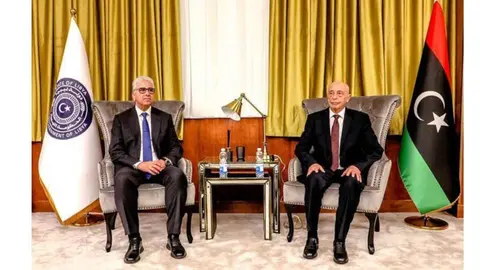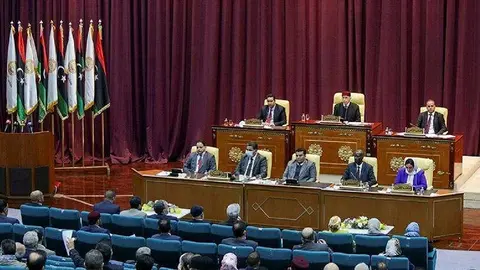Militia rivalry again strains stability of Libya's political process
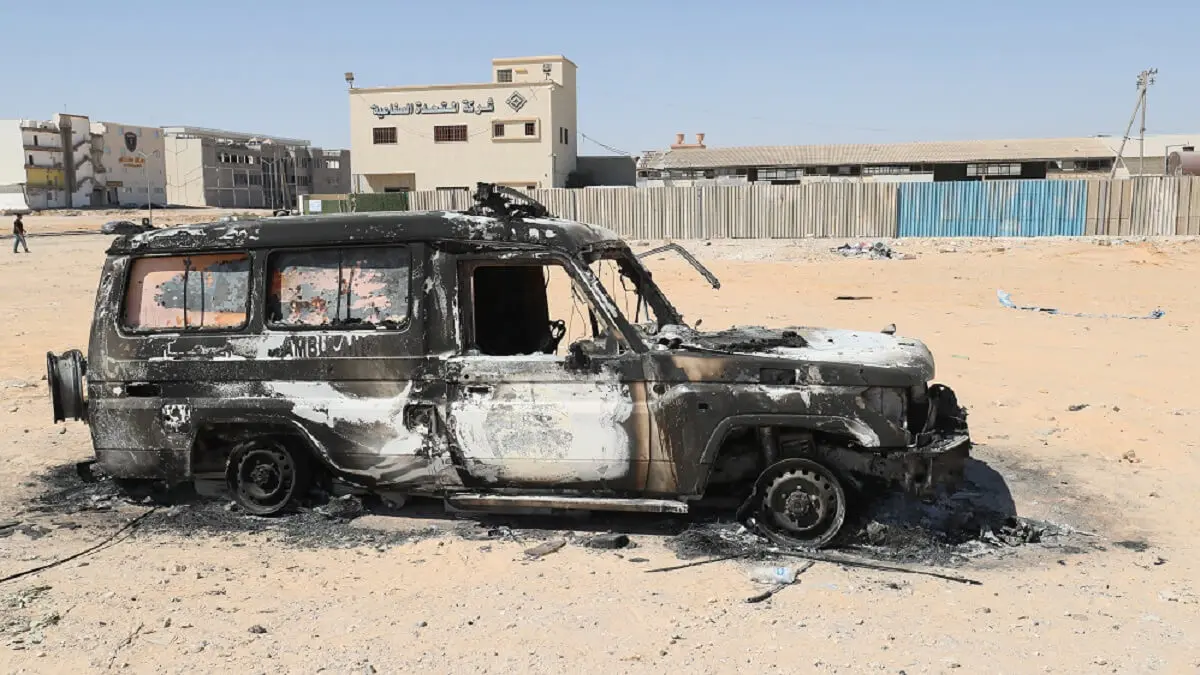
The worst military escalation this year in Libya, after more than a day of violent fighting between two powerful militias in Tripoli, ended with 27 dead and once again raising the alarm about the influence of armed groups on the stability of a country that is trying to move forward with a political transition process.
Hundreds of Libyan families were caught in the crossfire that erupted on Monday night when the leader of the 444 Brigade, Mahmoud Hamza, was held by the rival "Special Deterrence Forces (Rada)" group, in yet another warlike clash that has rattled a population with the memory of two civil wars in the last decade.
Security patrols were deployed today in the streets of the Libyan capital to secure the truce that came into effect on Tuesday night, following the mediation of a "council of notables" and the prime minister of the Government of National Unity (GNU), Abdul Hamid Dbeiba, which controls the west of the country, where a wide network of armed groups operates.
Hamza was transferred on Tuesday afternoon to the prison of the Stability Support Agency, another armed wing linked to Libya's Presidential Council, a source from the 444 Brigade, which brokered the ceasefire that remains in place on Wednesday, confirmed to EFE.
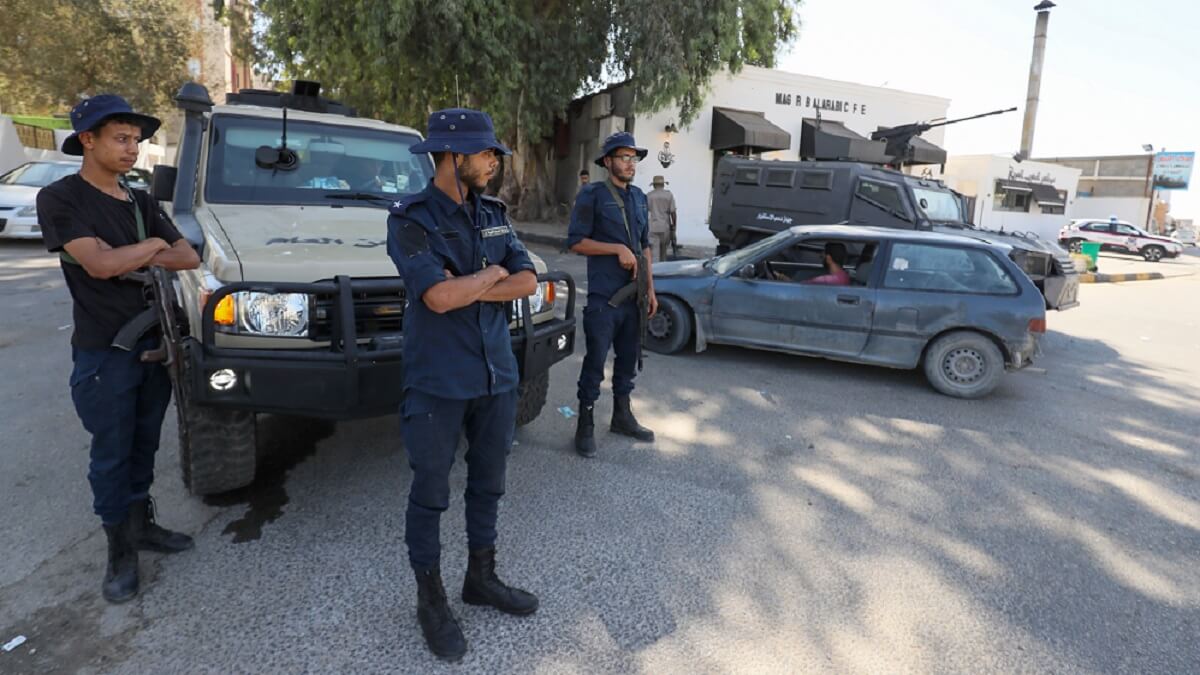
Actors in contention
Armed groups in Libya multiplied after the overthrow of dictator Muammar Gaddafi in 2011 and gained power through tribal and economic ties, including illicit activities, to the point of gaining control of specific territories, linking themselves to official institutions and acting as de facto powers.
This time, the fight broke out between two influential Tripolitanian armed groups: Brigade 444, with some legitimacy for its operations against human trafficking and smuggling; and the ultraconservative Special Deterrence Forces (Rada), a militia led by Abdul Raouf Kara, which operates independently under the auspices of the Ministry of Interior.
Brigade 444 has played a mediating role in previous clashes between rival militias in the west, and in May 2022 even escorted the former prime minister of the eastern parallel executive, Fathi Bashaga, when he was forced to flee Tripoli after a failed attempt to seize control of the capital.
While the political affiliations of these groups can be volatile, Dbeiba won the allegiance of the main militias in Tripoli and Misrata to the parallel executive in the east, sponsored by the parliament and Marshal Khalifa Haftar, which keeps the country divided into two administrations.
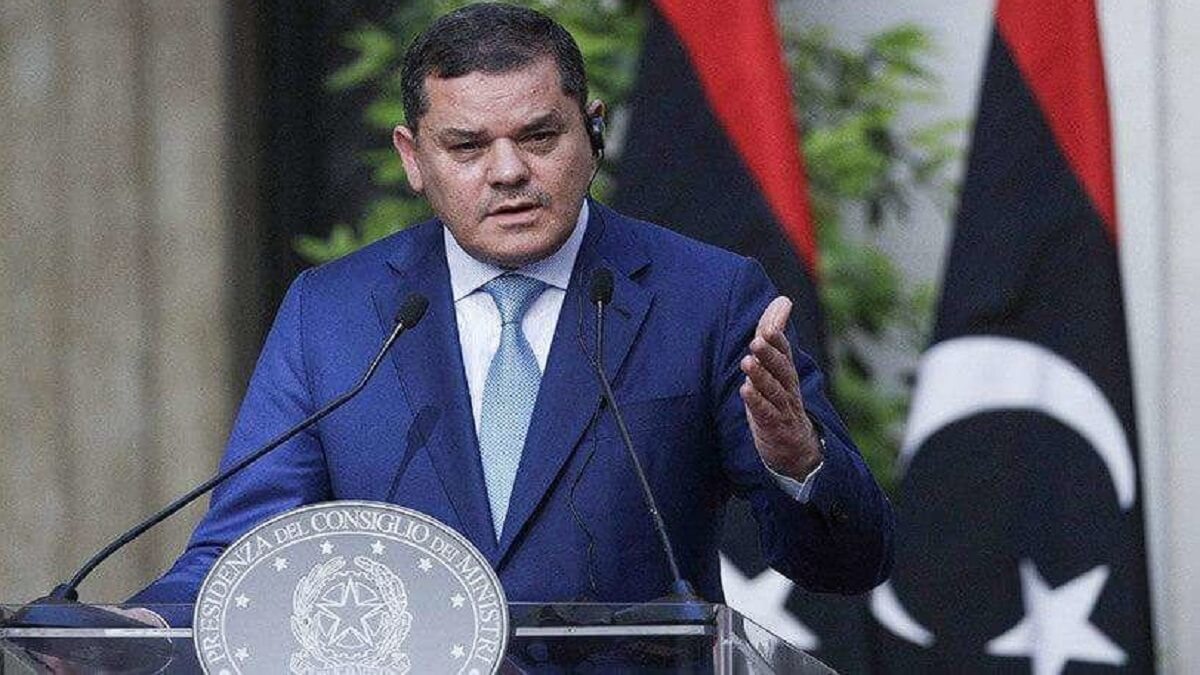
Militia power in the west
In May, the town of Zawiya, west of Tripoli, also saw intense clashes that left two people dead, which the same UNG chief of staff, Mohamed al-Haddad, described as "internal conflicts" between militias over control.
"We face the danger of armed formations and we urge increased institutional support in the city of Zawiya. We must take care of the youth," Haddad declared at the time.
Both Libya's Tripoli-based High Council of State, which is linked to the GUN, and the Libyan parliament, based in the eastern part of the country under Haftar's military control, condemned the attacks.
Both rival chambers advocated the development of a political roadmap, through the 6+6 Joint Committee, to move forward in convening parliamentary and presidential elections and unifying the country, whose western part faces growing internal insecurity due to rivalry between militias.
The UN Special Envoy to Libya (UNSMIL), Abdoulaye Bathily, also expressed concern about these recent violent events "because of the possible impact on ongoing efforts to cultivate a security environment conducive to moving the political process forward, including preparations for national elections," he said.


